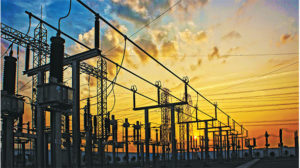When emotions drive energy policy
The National Propane Gas Association (NPGA) Executive Committee held a special meeting last month to set a path forward in our industry’s growing battle with the decarbonization and electrification movements in the United States and beyond.

About 33 percent of all energy-related carbon dioxide emissions in the United States is from the production of electric power, according to the Energy Information Administration. Photo: xuanhuongho/iStock / Getty Images Plus/Getty Images
Representatives from the Propane Education & Research Council (PERC) also participated.
Banning the use of fossil fuels in all parts of our lives seems to be the emotional choice of many to solve perceived human-influenced climate change. Climate change alarmists claim that climate patterns are being adversely affected by increased levels of atmospheric carbon dioxide produced by the use of fossil fuels. Here is how NPGA has framed the climate change challenge for the propane industry:
Misinformation about electricity as the only energy solution drives misperceptions, leading to flawed policy to address climate change. The attributes of propane as a viable energy solution are significantly misunderstood.
Local, state and federal policy changes promoting the use of electricity by banning the use of fossil fuels have already started on both coasts and are working their way to the heartland of our country. These policy changes in favor of electricity completely ignore the fact that, according to the latest available information from the Energy Information Administration, 64 percent of electricity generation in this country is still from fossil fuels and only 17 percent is from renewable energy sources, including biomass, which is another carbon dioxide producer.
About 33 percent of all U.S. energy-related carbon dioxide emissions is from the production of electric power, about the same percentage produced by the transportation sector. In other words, in the case of an electric car, the emissions are coming from the smokestack of a power plant instead of the tailpipe of a car. And this doesn’t even take into consideration the low 35 percent average efficiency of power plants and the power losses of transmitting electricity over long distances.
Despite these headwinds, the misinformed are promoting electricity as the savior of the human race because it can be produced from renewable resources, mainly wind and solar. But public resistance to wind farms and acres of solar panels is mounting. Eventually, it will become apparent that the major disadvantage with renewable electricity is the difficulty of generating quantities of electricity that are as large as those produced by traditional fossil fuel generators. The pace of renewable power installations will eventually slow, as its place in the overall energy picture becomes market driven instead of emotionally driven.
In the meantime, many policymakers are coming after you and your propane customers. They want to electrify everything so that the use of fossil fuel can be eliminated once and for all. This means no future use of propane for cooking, clothes drying, water heating, space heating and fireplaces. Even your gas grill and firepit in the backyard have become targets in this ongoing quest for decarbonization.
Fortunately, both NPGA and PERC recognize the dramatic negative effects that the decarbonization movement could have on our industry. They are coming together to find ways each organization can address the use of propane, both renewable and nonrenewable, as a low-carbon solution for limiting carbon dioxide emissions and its perceived threats to our environment. While strategies, tactics and targets of the two organizations may differ along the way, the converging results of the campaign will, hopefully, establish propane as a viable low-carbon energy source now and well into the future. Your business may well depend on its success.
Tom Jaenicke is vice president of propane marketing services for Warm Thoughts Communications.
















